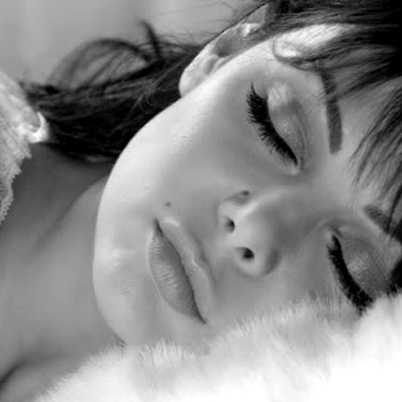A sleepless night also messes with leptin and ghrelin levels, two hormones involved in regulating your appetite. In a nutshell, leptin tells your brain when you're full and when your body should start burning calories. Ghrelin tells your brain when you need to eat and when it should stop burning calories to store that energy for fat.
When you stay up for 24 hours (or more), your leptin levels plummet and ghrelin levels increase, which sends both an "I'm hungry" signal to your brain and a message to stop burning those calories. The end result: unhealthy binging (because you're not eating broccoli at 2 a.m., you're eating cheese puffs dipped in frosting) and a sluggish metabolism. Sleep deprivation and its ties to appetite regulation has also been linked to disrupting the way your body regulates blood sugar and processes sugar into energy. Pull an all-nighter and it's hard for your filtration system to filter out glucose -- so much so that your kidneys start to look like a 60-year-old diabetic's, your insulin resistance goes up ... as does your risk of type 2 diabetes.
When you stay up for 24 hours (or more), your leptin levels plummet and ghrelin levels increase, which sends both an "I'm hungry" signal to your brain and a message to stop burning those calories. The end result: unhealthy binging (because you're not eating broccoli at 2 a.m., you're eating cheese puffs dipped in frosting) and a sluggish metabolism. Sleep deprivation and its ties to appetite regulation has also been linked to disrupting the way your body regulates blood sugar and processes sugar into energy. Pull an all-nighter and it's hard for your filtration system to filter out glucose -- so much so that your kidneys start to look like a 60-year-old diabetic's, your insulin resistance goes up ... as does your risk of type 2 diabetes.
At night, your skin kicks into catabolysis -- a renewal mode where more blood circulates, cell debris is removed and recycled, and your skin repairs all the damage of the day. When you don't sleep, your skin is forced to skip the catabolysis stage, meaning your face holds all onto inflammation, debris, free radicals and puffiness and literally ages faster. Hey, it's called beauty sleep for a reason. Studies show that poor sleepers have more wrinkles, uneven tone and less elasticity than those who hit the hay. Sleeping is basically the easiest anti-aging remedy ever.
If you're pulling an all-nighter, you're not doing it in the dark, and several studies have found that women exposed to artificial light at night (particularly night shift workers) develop breast cancer at a higher rate than other women. The research is so convincing, the World Health Organization has labeled night shift work a probable carcinogen. Researchers believe the phenomenon is linked to melatonin, the hormone that controls your sleep and wake cycles. Melatonin levels decrease when light is present, and melatonin is also partly responsible for suppressing estrogen. Scientists say less melatonin means more estrogen, which increases breast cell production. More breast cells mean more possibilities for abnormal (breast cancer-causing) cells.





